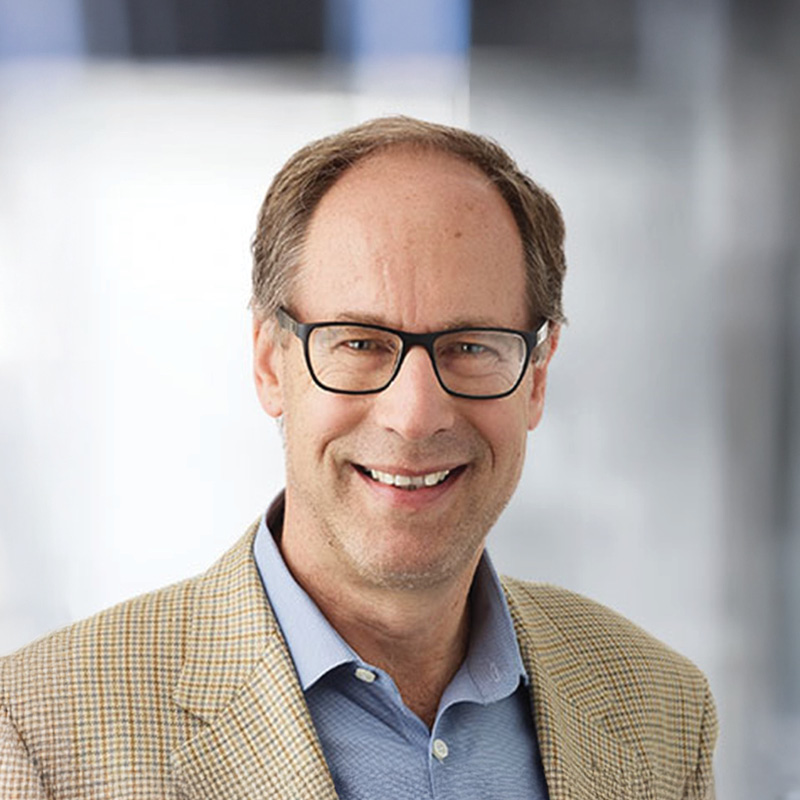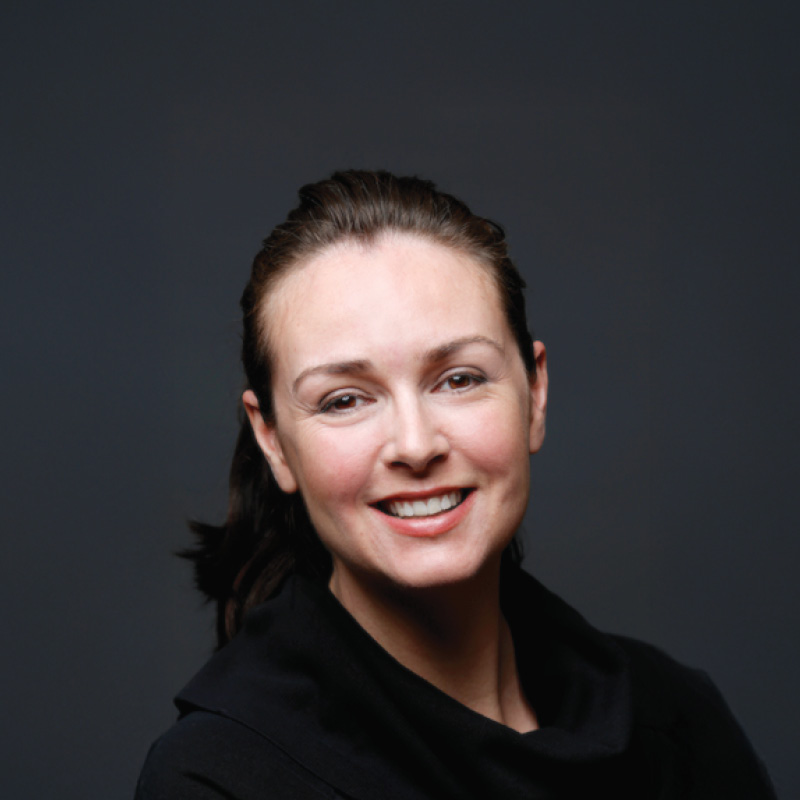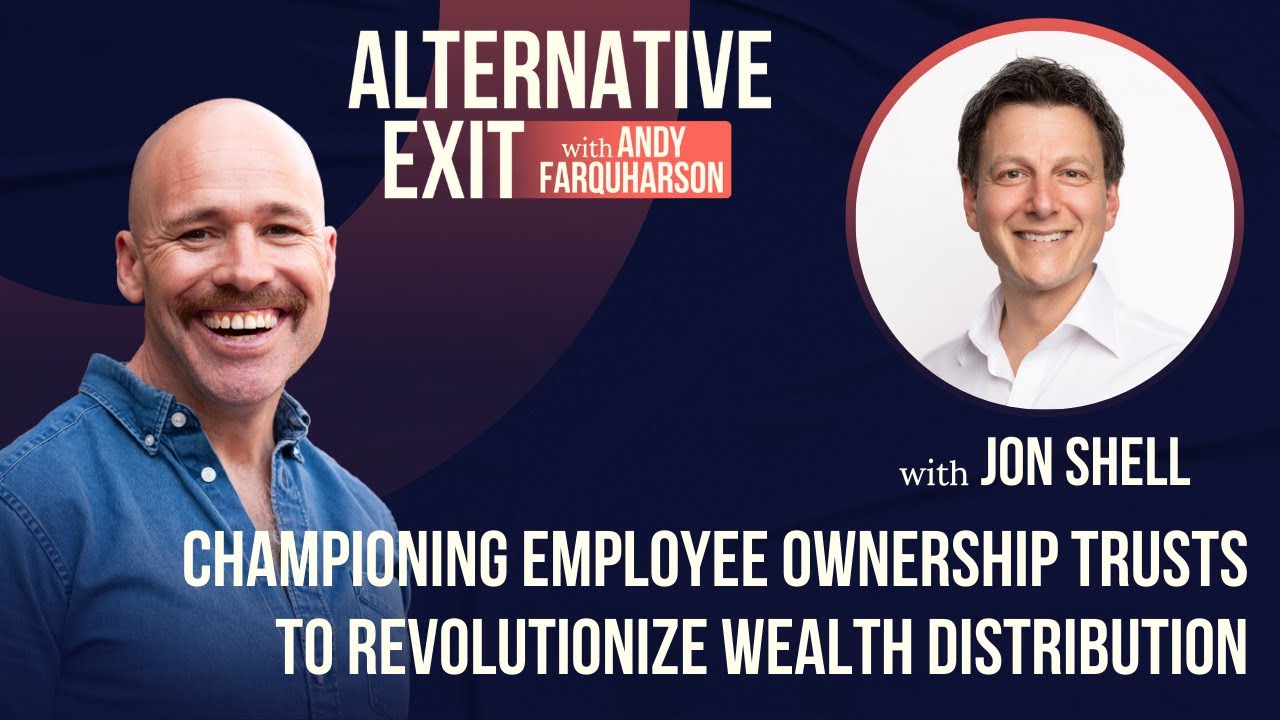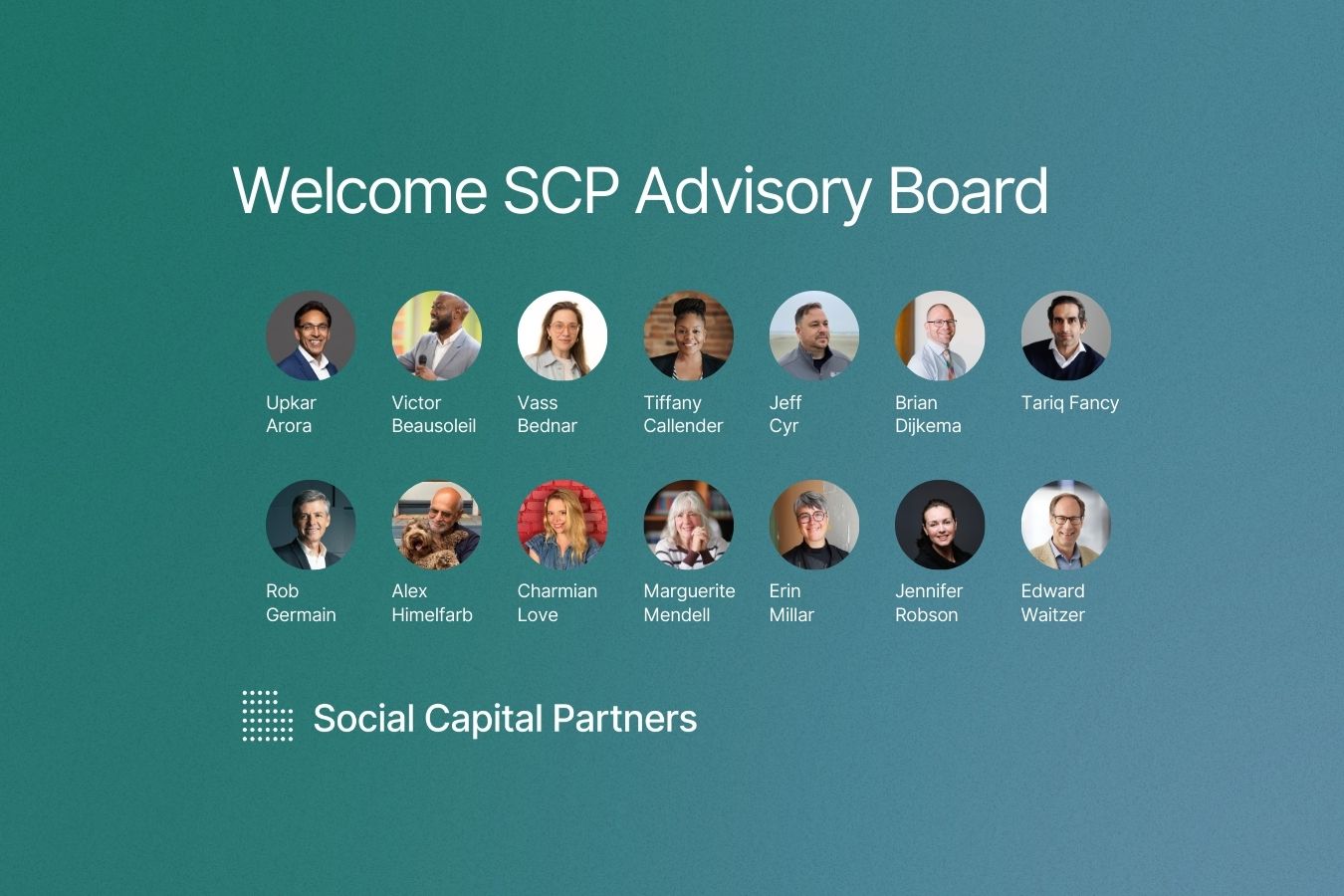Three ideas to make home ownership more affordable that aren't getting the attention they need
By Matthew Mendelsohn | Part of our Special Series: Always Canada. Never 51.
Canadians are more vulnerable to Trump’s economic warfare today because our housing system is in crisis and has left many Canadians insecure in their housing. Some of our own bad policy choices have put us in this position of vulnerability. But there are things we can do to rectify this, and I know who I want to hear from.
Mike Moffat and the team at Missing Middle have made a real impact on housing policy in Canada. Their work has helped refocus our discussions on supply and, more recently, on increasing costs caused by things like development charges. They have been a model for how non-partisan, evidence-based research and advocacy can shape public policy. Housing is still a national crisis because governments have made such terrible policy decisions for a very long time, but the team at Missing Middle is making things better.

So, I’d like to raise three housing policy issues that could use more of their attention.
First, the role of Canada Mortgage and Housing Corporation (CMHC) in making housing more expensive. CMHC charges mortgage insurance to new home buyers and makes a large profit. Their philosophical approach to their business is to run themselves like a private–sector mortgage insurer, rather than a public–purpose financial institution. They should stop doing that. Their large profit means they are charging too much. CMHC should be part of the solution, not part of the problem. Their policies make housing more expensive.
Why the government allows this remains a mystery. What say you Nate Erskine-Smith? As we face a declaration of economic war from the American administration, why is CMHC over-charging first-time home buyers?
Second, Missing Middle’s work has downplayed the role of investors in driving up prices. We at SCP have been on this issue for a while, and it seems obvious to us that if first-time home buyers are competing with investors looking for a safe place to park their funds, well, prices will go up and middle-class people will be priced out.
Investors are important for new residential development, but having investors buy existing homes drives up prices. This is true with respect to large residential real–estate investors as well as smaller ones.
We should disincentivize practices that treat real estate as an investment class. The U.K. has just increased its surcharge when you buy a second home, and in Singapore, there are graduated charges if you are buying a second or third home. In Canada we could do that. Dominic LeBlanc and Nate Erskine-Smith, what say you? As we face a full economic assault that will hit working and middle –class people hardest, why are we allowing investors to grow wealthier while families cannot afford a home?
“As we face a full economic assault that will hit working and middle-class people hardest, why are we allowing investors to grow wealthier while families cannot afford a home?“
And third, we need some research on the consolidation of various services in the residential real estate building sector. There is a lot of anecdotal evidence that many of the input costs related to building housing are getting more expensive, beyond what should be expected if markets were working properly. There are lots of factors connected to price inflation, but it appears that prices are going up in part because of market consolidation, private equity roll-ups and a lack of real competition. Many services important to the price of residential housing in some communities are increasingly run like cartels.
We need research on how this lack of competition and oligopolistic behaviour is impacting the price of housing. What say you François-Philippe Champagne and the Competition Bureau? Will you look into this? One way to make life more affordable for Canadians is to have real local competition.
These are just three questions that I think merit more attention. As we face an economic attack from the U.S. administration, there are many other things we can be doing in housing, like financing our non-market sector and approaching housing as strategic industrial policy. Our exporters and manufacturers are looking for new buyers for their products and accelerated investments in housing can help.
I’m curious what Mike Moffat thinks about these issues. I think they need more attention.
There are lots of things in the world we can’t control, but we have to stop sabotaging ourselves on the things Canada can control, like the cost of housing.
Inside the corporate battle over your pet's health | The Fifth Estate
SCP Fellow Rachel Wasserman speaks with CBC’s Steven D’Souza as part of an investigation into the skyrocketing cost of owning a pet. The documentary reveals how independent vet clinics are being gobbled up by multinational corporations and private equity for profit.
Speakers
Steven D’Souza
CBC’s The Fifth Estate
Rachel Wasserman
Social Capital Partners Fellow
Concepts of a plan to confront the new United States
Just because we don’t like what’s happening doesn’t mean it’s not happening.
It is so very Canadian that our commentators are filling the airwaves trying to figure out how to accommodate Trump’s tariff threats as if we’re having some kind of fact-based dispute on softwood lumber in the 1980s. Authoritarian superpowers threaten because they can.
Maybe we can find some magic combination of border measures and retaliatory actions that will unwind the worst of these threats. But even if you want to make a spirited case over a beer that the madness in the U.S. will pass, or that Trump is bluffing, or that countervailing centres of power in the U.S. will resist him, those increasingly look like magical thinking. What’s about to happen is seriously bad for Canada and we need to get busy.

Our playbook so far – some combination of making the case to Americans that they need us and preparing retaliatory trade action – is not enough. It isn’t even for the right game.
We need to start by recognizing that the U.S. is no longer a reliable partner or friend, and begin reorienting our economy accordingly.
This is obviously not easy and it is not clear where it will take us. But we have to try.
We have had a strategic economic alliance with the U.S. for a very long time. Both countries have believed that it was mutually beneficial. The current administration has said clearly they no longer believe this to be the case.
While things may change, we cannot presume they will. We must accommodate ourselves to a world in which the U.S. says quite explicitly that it doesn’t care about our economic well-being.
Our public discussions about “how to respond to tariffs” obscure the far bigger threat that is much more difficult to process intellectually and emotionally: we are living in a world in which the U.S. is using its enormous wealth and power to put America first, and the interests of Canada are irrelevant to that project.
Although there are many Americans who abhor what the Trump administration is doing, the largest, most powerful companies in the world, many of which are integrated digital, AI, media and national security companies, understand what they are expected to do.
So, it sucks to be us, but let’s get on with the work of changing the mental maps that shape how we understand our relationship with the U.S. It’s not us, it’s them. They’ve changed. So now we need a different plan.
This radically different world means we must embrace strategic industrial and economic policy focused on building Canadian wealth, data sovereignty, industrial capacity, scientific and technological excellence, natural resource leadership and intellectual property. Some smart proposals include ideas to remove patent protection for pharmaceuticals and create our own digital app store.
There is so much we can do. We should reorient long-standing government procurement processes to purchase goods from Canadian businesses and entrepreneurs.
We should redirect all government advertising on American-owned global digital platforms and media to Canadian outlets.
“So, it sucks to be us, but let’s get on with the work of changing the mental maps that shape how we understand our relationship with the U.S. It’s not us, it’s them. They’ve changed. So now we need a different plan.”
We should allocate more capital to the Business Development Bank of Canada (BDC), Export Development Canada (EDC) and Canada Development Investment Corporation (CDEV) to invest in Canadian businesses, support Canadian entrepreneurs who want to buy businesses from those retiring and de-risk aggressive strategies to diversify trade. We should accelerate the capital cost allowance as we have done in the past. And it seems clear we should control our own digital and wireless networks and not let Elon Musk anywhere near them.
This will require all governments to re-organize around big challenges rather than specific ministries. This will need to start with informal governance and workarounds because systems change slowly and we need to start today.
But this isn’t just a public-policy project for governments. This is a whole-of-Canada project for all of us.
Large public-purpose institutions, like hospitals, colleges and universities need to look at their procurement and purchasing practices, as well as the investment practices of their endowments and invest more at home.
Philanthropic foundations, heavily subsidized by the Canadian taxpayer, must grant more than their 5% disbursement and invest more of their endowments in ways that have a positive impact in Canadian communities. Donor-advised funds and family offices should do likewise and choose, for example, to invest more in affordable housing and less in American equities. Why not fund an unlimited number of new medical, science and tech research chairs and see what that produces?
Our pension funds have resisted calls to invest more in Canada, but American capital is being mobilized to advance the narrow ‘America First’ economic interests of the U.S. It cannot be business as usual for Canadian pension funds.
And all of our corporate giants and financial institutions who benefit from the regulatory protection of the Canadian state now must put their money where their mouths have been: if it is really in the national interest to have large oligopolies, now is the time to reorient their practices to purchase and invest to support Canadians and smaller Canadian companies.
Our public financial institutions, like Canada Mortgage and Housing Corporation (CMHC), the Canada Infrastructure Bank, BDC and EDC can make all kinds of significant changes, including simple ones like charging Canadians less for insurance or reducing interest rates to small businesses.
And just as we sued Big Tobacco companies in the past, it’s time to revisit the civil suits against social media giants for the social harms that they cause – processes that were ended when protections for digital platforms were stealthily included in the Canada-U.S.-Mexico Free Trade Agreement.
And perhaps the most important point as we prepare to confront this existential threat: our institutions of power and influence should undertake all of this work with a focus on the interests and lives of working and middle-class people. At the end of the day, our corporate leaders and retired public servants like me will be fine (probably…?) But there are lots of people who won’t be fine and will find themselves pushed into bankruptcy or hunger or homelessness. As we reorient our mindset, practices and policies to adjust to this new world, we need to put the interests of working Canadians first.
I don’t pretend to have a detailed plan, but we need to mobilize all our formal and informal networks. The coalitions, councils and networks of elite power need to step up for Canadians. Stop talking and start doing. And at the more local level, the chambers of commerce and community foundations need to get together next week to figure out better ways to support their communities starting yesterday.
None of this may work. But what Trump seeks is submission and humiliation from anyone he deals with. Even if you were wearing a MAGA hat last year, some part of you has to recognize that the U.S. has changed in ways that threaten Canadians’ economic well-being. It is clear that some of us are choosing subjugation, but we don’t have to.
Living next to a superpower run by oligarchs is not where we expected to be 20 years ago. But it’s where we are. Pretending otherwise doesn’t serve our interests. Canada is big enough, powerful enough, smart enough and rich enough to reorient our policies, practices and investments towards building a stronger, more independent economy. We just haven’t had to do that until now. But now we have to. I’m done with this shit.
The Alternative Exit podcast: Championing Employee Ownership Trusts to revolutionize wealth distribution
SCP Chair Jon Shell sits down with Andy Farquharson on The Alternative Exit podcast to explore the transformative potential of employee ownership. Jon recounts how he advocated for Employee Ownership Trusts (EOTs) in Canada to address wealth inequality and business succession. He talks advantages of EOTs, from preserving a company’s legacy to fostering economic resilience in the workforce and reshaping both business culture and wealth distribution.
Speakers
Andy Farquharson
Host, The Alternative Exit podcast
Jon Shell
Chair, Social Capital Partners
Social Capital Partners appoints slate of new advisors
January 21, 2025, Toronto (ON): Social Capital Partners CEO Matthew Mendelsohn today announced the appointment of a new Advisory Board that will support the organization in its next phase of work confronting growing wealth inequality in Canada. The nonprofit’s mission is to create more pathways to wealth and asset ownership for working people.
“The economic assumptions that have informed our understandings of how capitalist, democratic economies work are collapsing in front of our eyes,” says Mendelsohn. “That vacuum needs to be filled with realistic and viable options to make the economy work better for more people.”
The data are clear that working people and young people are facing higher barriers to economic security than in previous decades. Those challenges are creating well-founded anxieties that are causing the destabilization of democratic societies around the world.
“At Social Capital Partners, we are comfortable trying new things, even when we’re unsure of the outcomes,” says Mendelsohn. “We have assembled a creative, intellectually diverse group of brilliant, kind Canadians who all want our economy to work better. They will challenge our assumptions and help us make the right strategic choices about where we put our resources in the coming years.”
Advisory Board members will advise on SCP’s strategy and agenda, drawing on decades of experience across finance, business, government, public policy, communications, civil society and community economic development. They include:
“We have assembled a creative, intellectually diverse group of brilliant, kind Canadians who all want our economy to work better.”
Upkar Arora, CEO of Rally Assets.
Victor Beausoleil, Executive Director of SETSI – The Social Economy Through Social Inclusion.
Vass Bednar, Executive Director of McMaster University’s Master of Public Policy in Digital Society program.
Tiffany Callender, Co-Founder and CEO, Federation of African Canadian Economics (FACE).
Jeff Cyr, Founder & Managing Partner of Raven Indigenous Raven Indigenous Capital Partners.
Brian Dijkema, President, Canada at Cardus.
Tariq Fancy, Founder of The Rumie Initiative.
Rob Germain, CEO at CHEK Media.
Alex Himelfarb, Former Clerk of the Privy Council.
Charmian Love, Chief International Advocacy Officer at Natura &Co.
Marguerite Mendell, Distinguished Professor Emerita at the School of Community and Public Affairs and Director of the Karl Polyani Institute of Political Economy and Concordia University.
Erin Millar, CEO and Co-founder of Indiegraf.
Jennifer Robson, Associate Professor of Political Management at Carleton University.
Edward Waitzer, past Chair of Stikeman Elliott LLP.
To learn more about the Advisory Board and see complete biographies, please visit www.socialcapitalpartners.ca/our-people/.
About Social Capital Partners
Who owns the economy matters. Social Capital Partners believes working people deserve a fighting chance to build economic security and wealth. A Canadian nonprofit organization founded in 2001, we undertake public policy research, invest in initiatives and advocate for ideas that broaden access to wealth, ownership and opportunity, and that push back against extreme economic inequality. To learn more, please connect with us on LinkedIn or Bluesky or visit socialcapitalpartners.ca.
For more information, or to arrange an interview, please contact:
Katherine Janson
Director of Communications
Social Capital Partners
647-717-8674
katherine@socialcapitalpartners.ca
Why small businesses need rent control
By Aaron Binder and Liliana Locke (née Camacho), the Better Way Alliance. This post first appeared in Canadian Business.
When large waves of Irish and Italian families immigrated to Canada a hundred years ago, many opted to open small businesses in their communities rather than work in factories and fields. The low cost of real estate in their neighbourhoods meant within a generation they were able to buy the storefronts they initially rented. Since the cost of operating a business in an owned space is considerably lower than that in a rented space, their businesses succeeded, and thousands of new immigrant families were able to create generational wealth and gain a sense of economic independence, all the while contributing to their local economy.
Today, immigrants to Canada remain more likely to open a small business than their native-born counterparts, but that success story doesn’t ring true for them anymore. Across the country, small businesses are grappling with sudden, often unaffordable, rent increases.
A survey from the Canadian Federation of Independent Business last year found that approximately half of businesses were reporting difficulty coping with rising occupancy costs, warning of an affordability crisis amongst small businesses. According to the Toronto Regional Real Estate Board, retail rents in Toronto have risen by 67 per cent since 2020. In the past eight years, industrial rents have doubled in cities like Toronto, Vancouver, and Waterloo.

As part of our work at the Better Way Alliance, a network of Canadian business owners that advocate for fair wages, reasonable work hours, and equitable workplace conditions, we speak with dozens of business owners to understand the challenges they’re facing. They are reporting to us that these statistics are reflective of the reality on the ground.
We’ve heard countless stories of rent negotiations proving unfruitful and small businesses being forced to relocate outside of their communities. One family-run food and spice importer in the GTA we spoke with said their rent tripled when the local owners retired and sold the property to a multinational real estate firm. Another business owner, a Syrian refugee in Hamilton, told us that despite his restaurant surviving the pandemic, his landlord increased the rent by 50 per cent overnight, forcing the restaurant to close its doors.
While some point to limited real estate as the culprit behind alarming commercial rents, the reality is more complex. Often landlords have little incentive to negotiate fairly because they’re willing to forgo rent payments today to hold out for a higher-paying tenant tomorrow, leaving storefronts vacant.
Commercial renters don’t have the same legal protections as residential tenants. Commercial leases are not protected by provincial rent control caps. Most provinces don’t offer affordable dispute resolution: in Ontario, commercial landlords can evict a tenant only 16 days after rent is missed, effectively making it impossible to withhold rent if a landlord has failed to cover unexpected repairs or renovations. This imbalance stifles innovation, displaces local entrepreneurs, and erodes the cultural and economic fabric of our main streets.
The solutions to this problem are practical and proven: Commercial tenants deserve rental protections similar to those granted to residential tenants. Commercial rent control, in conjunction with other government policies and market-based initiatives, would support and safeguard the small business ecosystems that employ so many Canadians.
Rent caps would grant small businesses the stability to plan and invest without the constant fear of unpredictable rent hikes that threaten their long-term viability. In the way that Ontario residential tenants know they can expect their rents to increase approximately 2.5 per cent year over year, with commercial rent control, small businesses could anticipate more predictable costs, allowing them to focus on growth rather than the uncertainty of market increases. That growth is crucial in fostering the wellbeing of local economies and generating jobs.
Standardizing commercial lease agreements is another easy win. Mandating plain language and clear terms would reduce costly misunderstandings and level the playing field for commercial tenants negotiating with corporate landlords. In Ontario, where we live, the province should establish a tribunal under the Commercial Tenancies Act that would offer small businesses a fair, affordable alternative to lengthy court battles. Finally, creating a tax incentive to developers and landlords who offer small, affordable spaces to independent businesses would create an alternative to chain-store neighbourhoods.
Contrary to popular beliefs, these measures are not radical. Countries around the world have implemented similar policies to support local economies. France caps commercial rent increases at 10 per cent between lease terms. Small retail tenants in Australia have access to mediation services for disputes. In New York, tax incentives encourage landlords to lease long-term to local businesses in order to create jobs. California recently adopted progressive legislation that caps rent increases for small brick-and-mortar businesses, while granting tenants additional protections.
Canadian municipalities are now exploring similar protections of their own. Last year Vancouver’s New Westminster city council passed a motion asking the province to explore commercial rent controls to help local businesses. A couple months later, Toronto City Council voted almost unanimously for a motion that requested the province implement commercial rent reform and other legal protections for commercial tenants, drawing from some of our legislative suggestions. Frustratingly, the province has not responded with any comments, leaving renters feeling it is not on the side of small business tenants.
The dangers of not providing commercial rent control are already apparent in our largest cities. Just a decade ago in Toronto, Queen Street West was the heart of Canadian popular culture. Teenagers visiting from around the country begged their parents for a free afternoon to explore Black Market or Steve’s Music. For bands coming from afar, landing a show at the Horseshoe Tavern was the first step to making it big—gracing the same stage as The Rolling Stones, Rush, and Joni Mitchell.
But as rents skyrocketed, the grit that made Queen West iconic disappeared. Independent shops gave way to mall chains selling nostalgia, smothering the very culture they tried to capitalize on. It’s no longer a destination of interest, and the shopping is the same as any large shopping mall. The jobs, community, and wealth those old independent shops created are gone.
Commercial rent protections in cities like Toronto would improve local vibrancy. Penalizing the landlords who keep storefronts vacant would discourage the speculation-driven practices that create unsafe, unfriendly ghost-towns, and give more residents greater opportunities to spend local. According to the Canadian Federation of Independent Business, 66 cents of every dollar spent at a small business recirculates back into the local economy, compared to only 11 cents of every dollar spent at a multinational retailer.
The story being played out daily by small businesses across Canada need not be the case forever–we can write a better one. At BWA, we know many small businesses that weathered the pandemic or were able to re-open in new locations after shuttering. However even more will stay closed permanently without commercial rent control because of the emotional and financial weight of their rent.
Building an economy that prioritizes fairness and stability will strengthen our main streets, empower small manufacturers, and secure Canada’s future as a global leader in small business innovation. By providing tenants a voice in tenant-landlord relationships, we can put more money in their pockets and create a new wave of property purchases by local business owners that create economic and ownership stability in our neighbourhoods.
A message from Social Capital Partners: We’re going to tell you the truth
I am not going to tell you sweet stories about how everything is going to be okay. There are a lot of bad things happening in the world – and things might get worse.
When I joined Social Capital Partners last year with the goal of building a better economy, we talked about how challenging it would be. There were many forces working to consolidate wealth, entrench economic inequality and erode democracy.
It has only gotten worse. Authoritarians around the world are working to undermine democratic capitalism, and Canadians are faced with an incoming American president who promises to inflict economic pain on Canadians.
Is it scary? Sure. Worse, our current moment comes against the backdrop of an economy that is already failing working people. In many capitalist democracies, working people are experiencing real financial insecurity. For decades, most of the benefits from economic growth have gone to wealth and capital. If you think people’s anxieties are “just vibes,” you are not looking at the right data or talking to the right people.

The barriers to wealth-building and intergenerational economic mobility for working people are higher than they’ve been in my lifetime. The pathways to building economic security and owning assets – like homes, businesses, investments, savings and pensions – are filled with larger and larger potholes. The data are clear on this.
The neoliberal, trickle-down consensus has failed to deliver for working people and younger people. It is increasingly obvious to almost everyone that the economic theories of the past 50 years, advanced by large financial interests, have delivered economic growth that has created obscene wealth for some and economic insecurity for most of us.
We need to be explicit about this failure. We’ve watched the ideological consensus collapse in front of our eyes. In many places, the vacuum is being filled by grifters and monsters. But Canada is truly lucky, and we can make different choices here.
___
When I came of age in the 1990s, I found a cheap apartment in Montreal, paid a few hundred dollars for university, graduated into a job market filled with middle-class opportunity and immediately bought a house and found a job with a good pension.
I knew that I was privileged, and that the experience of my generation was anomalous in human history, but I didn’t realize how quickly history would decide that it wasn’t done with us yet. Things have gotten worse for lots of people, who have to fight much harder for a fair chance to build economic well-being and live a secure, middle-class life.
So, I am excited about the rise of economic populist anger that is driving politics right now. Engaged citizens demanding something better, combined with practical ideas and sustained organizing, can build a better economy. It is almost always the only thing that does.
The economic challenges working people and young people face today are not the same as they were when I grew up. More and more economic activity in Canada is driven by consolidation, financialization and wealth extraction, rather than by building shared value for people and communities.
Purported solutions from the 1990s don’t provide answers on how to confront these issues. The economic models and toolkits we have no longer work because the structure and operation of our economy have changed.
Throughout our history, populist energy, coupled with good ideas that push back against the interests of Big Finance and corporate power, has built a better Canada. It is time for us to unlock that energy again.
And there is lots we can do. Make it easier for employees to own the businesses they work for. Strengthen competition laws to protect smaller businesses and prevent oligopolies from abusing their power. Require financial institutions to invest more in rural, racialized and Indigenous communities. New incentives to create more employer-based pension systems. Creative tax policy that stops the wealthy from wealth-hoarding and avoiding their civic responsibilities. More capital in the hands of people and places where it will deliver long-term economic well-being for communities. Policies that favour young people trying to secure housing rather than investors trying to build a fortune.
There are lots of real, tangible public-policy solutions to the problems we face. But it begins with talking about the economy in a different way, grounded firmly in the public interest and data that reflect the reality of how people experience their economic lives.
Most of the people who end up on stages talking about the economy seem to celebrate economic growth models that result in extreme inequality. We think celebrating these models leads no place good.
___
At Social Capital Partners, we understand our role in the coming years: tell the truth about the economy and who it works for, and advocate for transformational ideas that will build an economy that works for more people.
“Most of the people who end up on stages talking about the economy seem to celebrate economic growth models that result in extreme inequality. We think celebrating these models leads no place good.”
In an age when reactionary forces want people to feel powerless and afraid, we will continue to point out that the economy is a creation of human beings and is shaped by the rules, institutions, ideas and norms that we choose.
For those who have been with Social Capital Partners on our journey for the past 25 years, you know that we understand business and believe in the market economy. We believe in the power of entrepreneurs and markets to deliver economic growth and innovation. But you also know that we believe that capitalism requires regulations and practices that value the common good.
We are not okay with a status quo that extracts wealth and redistributes it upwards, concentrating economic power in fewer hands.
We do not know what the world will look in 10 years, but we will do our small part to try and shape that future towards more wealth and economic security for working people. We have the freedom to speak as we wish and call ‘bullshit’ when we see it, and we will put that freedom to work.
We hope that our networks of partners, investors and smart, kind people who’ve joined us in the past and understand how finance and public policy work – whether from your time in business, finance, consulting, politics or the public service – will choose to join us again. Canada needs you to put your knowledge to work to build the kind of economy, democracy and society that are true to the promise of the Canadian dream.
The system is not working for working people, but it can be unrigged, and you can help. Extreme wealth inequality, economic growth that delivers benefits to those who already have a lot, and barriers to intergenerational mobility are policy choices, and we can make different choices. If we don’t, we’re all cooked.
Feedback on the Competition Bureau’s Review of the Merger Enforcement Guidelines
There is a growing recognition, both globally and within Canada, that competition is essential to fostering a strong, resilient and productive economy. Yet, despite this consensus, the Canadian economy is becoming increasingly consolidated and entrepreneurship is in steep decline. We are particularly concerned with serial-acquisition strategies wherein large firms acquire smaller companies in ways that evade regulatory scrutiny.
In light of the recent updates to the Competition Act and increased focus on competition as a critical element of a productive economic landscape, we are delighted to have an opportunity to provide input as to how the Competition Bureau might leverage its new powers to limit anti-competitive mergers.
Our recommendations pertain to:
- The content of the revised guidelines
- The internal operational considerations we believe will be critical to maximizing the impact of merger review as a tool
- Increased accessibility of merger review information
Collectively, the recommendations aim to provide a framework for identifying and analyzing concerning below-threshold mergers, ensuring greater transparency and capturing a more fulsome accounting of costs and benefits in merger analysis.
Edward Waitzer
Advisory Board
M@st3rSCP
Edward Waitzer was Chair of Stikeman Elliott LLP from 1999 to 2006 and a senior partner until his retirement in 2021. He remains affiliated with the firm and his practice continues to focus on complex business transactions and a range of public policy and governance matters.
He is Professor Emeritus, past Jarislowsky Dimma Mooney Chair in Corporate Governance and was Director of the Hennick Centre for Business and Law at Osgoode Hall and the Schulich School of Business at York University from 2008 until 2020.
Edward has served as Chair of the Ontario Securities Commission, the Technical Committee of the International Organization of Securities Commissions (IOSCO) and as Vice-President of The Toronto Stock Exchange.
He has written and spoken extensively on a variety of legal and public policy issues, chaired various committees and task forces addressing public policy issues and serves and has served on and chaired a number of corporations, foundations, community organizations, editorial boards and advisory groups.
He is a Senior Fellow at the C.D. Howe Institute and the Centre for International Governance Innovation (CIGI) and was an inaugural fellow of the American College of Governance Counsel.

Jennifer Robson
Advisory Board
M@st3rSCP
Jennifer Robson is an Associate Professor in the Graduate Program in Political Management at Carleton University, where she teaches courses in public policy analysis and advocacy.
Jennifer has published research on family policy, tax policy, wealth inequality, gender inequality and the design and delivery of social programs.
Prior to joining Carleton, Jennifer held senior roles in policy development and research at Policy Horizons Canada and the federal Department of Finance and spent nearly a decade in the voluntary sector.
She is a 2024-25 McConnell Visiting Scholar at the Max Bell School of Public Policy (McGill), and a visiting fellow and Research Advisor to the Institute for Research on Public Policy. She has participated in a wide range of advisory bodies for the Minister of Finance, Employment and Social Development Canada and the Canada Revenue Agency. Jennifer continues to collaborate with non-profit organizations through the Asset-Building Learning Exchange among others.




